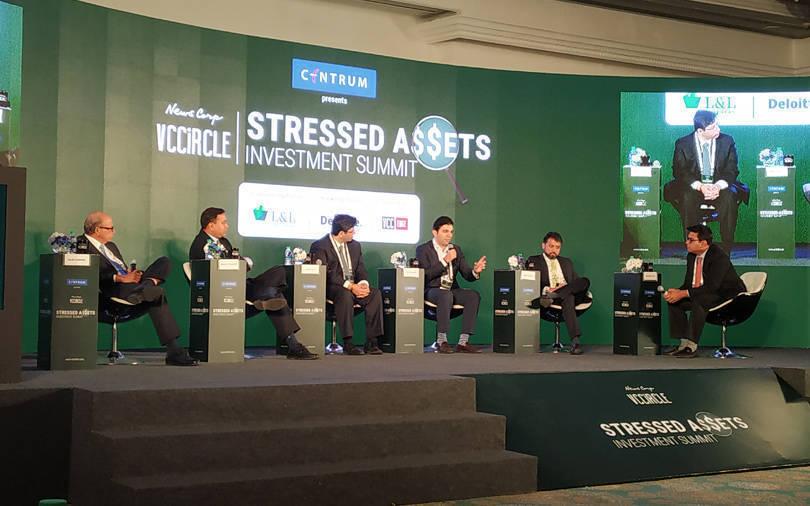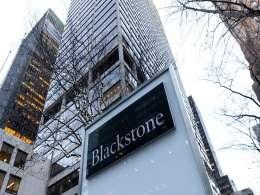The Insolvency Bankruptcy Code, 2016 (IBC) has helped improve processes but delays in resolution and less access to quality data has pushed several defaulting companies to opt for out-of-court settlement, said panellists at the second edition of the News Corp VCCircle Stressed Assets Summit 2019.
However, panellists agreed that better time management and focus on asset value creation will be key to successfully resolve distressed loans within or outside the insolvency process.
The panel comprised Rajiv Agarwal, chief executive and managing director, Essar Ports; Sandeep Upadhyay, managing director of the infrastructure practice at Centrum Capital; Anurag Das, MD and chief executive of IARC; Aditya Khanna, founder, MD and CEO at ART Special Situations Finance; and Nirav Pujara, partner of corporate finance and restructuring, Deloitte India. Krishnava Dutt, managing partner at law firm Argus Partners moderated the session.
“Broadly, we look at three buckets—process, diligence and valuation. It has pros and cons within and outside the National Company Law Tribunal. Outside the NCLT, there is access to better quality of information. From a process standpoint, there is better clarity on timeline but outside of NCLT, since it is bilateral there are better chances of a successful outcome,” said ART’s Khanna while speaking about resolution within or outside of the IBC.
According to co-panellist Upadhyay of Centrum Capital, the larger concern is the delay in the insolvency proceedings beyond the mandated 180-270 days.
“One thing that bothers me is the time taken for resolution. That is one of the key driving factors that a lot of pre-NCLT scenarios could be a preferred option for resolution for stressed assets," he said.
Data suggests that more than 20% of the current corporate insolvency resolution process (CIRP) assets have actually exceeded nine months.
“More than 50% of the 900 CIRP cases are actually past six months. Beyond a point, it leads to fatigue and also diminishes the value of the asset and leads to asset deterioration,” Upadhyay added.
Das of Blackstone-backed International Asset Reconstruction Co (IARC) highlighted that with IBC, processes are in place when it’s a one-time settlement (OTS) procedure, while resolutions passed outside the NCLT have the advantage of promoters’ involvement, thus making them easier settle.
On similar lines, Khanna said that the IBC is an option but there is a meagre 10% chance of success in bidding when the asset in facing insolvency. Moreover, the data gathered under the process is of bad quality and also subject to litigation and a lot of uncertainties.
“Under the IBC, we get good clarity on the liability front at the NCLT. On the asset side, there is better clarity outside of the NCLT as we have better access to information," he added.
Das said that for resolutions outside the IBC, it is important to have an asset reconstruction company (ARC) as a platform to manage and restructure the huge public sector assets with investor money.
Essar Ports’ Agarwal pointed out that the infrastructure space will not get cheaper and still commands huge premium and that banks would want to resolve it before going to the NCLT.
He pressed the need for alternate means of capital including that from infrastructure funds or funds from external investors.
All panelists spoke about the need for value creation under the IBC that will determine what kind of interest the resolution professional (RP) is generating in the asset and an investor must be found to run it on a sustainable basis.
Khanna said he would like to see the bad assets of engineering, procurement and construction (EPC) companies to be resolved outside the NCLT because their value deteriorates significantly under the tribunal. “It is easy to sustain steel or power assets inside the IBC as there is an underlying asset,” he explained.
Pujara from Deloitte, which also provides RP services, said that due to fear of management changes and loss of control under the IBC, promoters were also coming to the table for settlements outside of the NCLT.
In conclusion, all agreed that there needs to be a mindset change of stakeholders, especially lenders outside the realm of the IBC.
“Unless that happens, irrespective of the sector, we will create more and more pressure on the NCLT, which is now taking six months to admit a case instead of 14 days, which is defeating the premise of the IBC to handle cases within a stipulated time frame,” he added.
Sectoral preferences
In a separate panel titled ‘Picking good from bad’, panellists discussed which sectors offer better opportunities for a successful resolution of distressed assets.
According to Eshwar Karra, CEO of Special Situations Funds at Kotak Investment Advisors, engineering, procurement and construction companies may be liquidated they are not fixed before they are tried at the NCLT.
“Right now, steel, auto and maybe power, which also needs some fixing, look good (to buy),” he added.
In the same panel, Sharad Bhatia, former MD of stressed assets at Multiples Private Equity said that more than the sector, the price is critical while picking an asset.
“Yes, sectors are attractive but stress is essentially a price and valuation game," he stated.
Sunil Varma Marri, executive vice president of investment banking and head of energy and utilities at Centrum Capital said that pre-NCLT has the maximum value.
According to him, bankers need to make decisions faster and the committee of creditors needs to deploy their deeper capabilities for the IBC to work efficiently.






